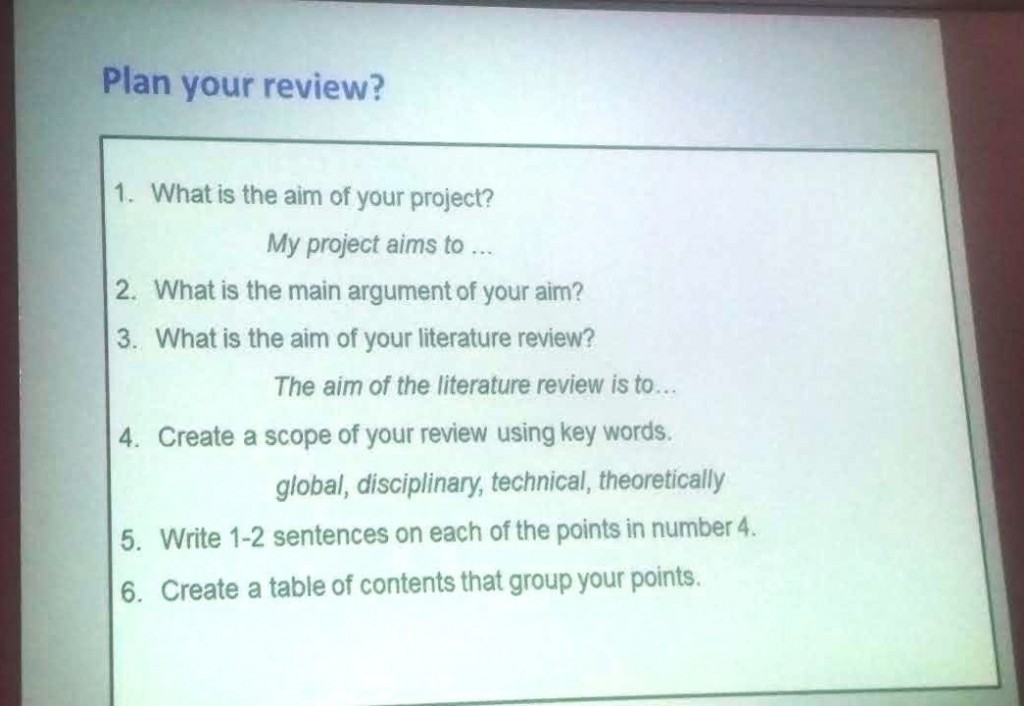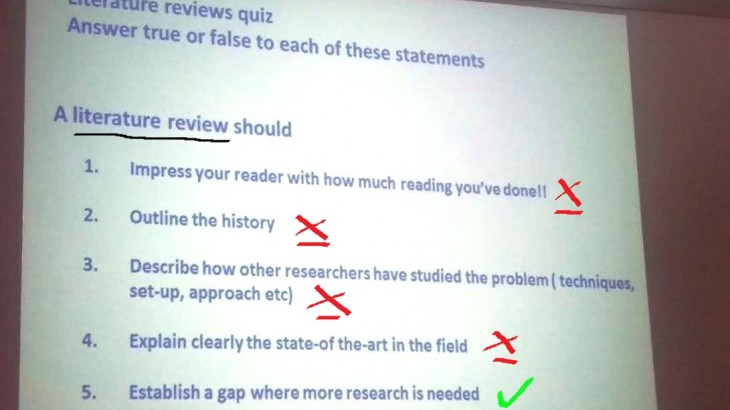I attended this workshop organized by the Graduate Student Academic Support (GSAS) for the Faculty of IT students. This was a practical workshop that explored the purpose and conventions of a literature review. We were asked to draft our own literature reviews and were given valuable feedback by the Lecturer – Ms. Julie Holden.
Date: Wednesday 2 March, 2016
Time: 10:30am – 12:30pm
Venue: InfoTech ClSIT Mtg Room 115, Clayton
Some important points emphasized during the workshop was that:
- Writing is an iterative process.
- Scope – describes what this document is.
- Narrative – what is the story/focus is in the document.
There was also very interesting discussion/quiz that helped us define what a literature actually is. Some of the things I gathered was that, the main objective of a literature review is not to:
- Impress your reader with how much reading you have done.
- Outline the history.
- Describe how researchers have studied the problem (techniques, set-up, approach etc) and
- Explain clearly the state-of-the-art in the field.
I learnt that the literature review is carried out primarily to establish a gap where more research is needed. It is an argument for your research and why it is needed (one can mention others work but establish the gap by moving between known and unknown). A review is written many times in a research projects – eg. when one is scoping the field or when focusing on particular/specific field or document (ie. specific presentation/conference). GAPs are defined as when previous work is: deficient; open to debate (different viewpoints/ claims); incomplete; missing certain components or too narrow. This (GAP) can be effectively highlighted in the review using proper language conventions – verb tense – objective and critical voice, for example:
- However, these studies have failed to recognise that … (counter-claiming)
- However, recent work suggests that … (counter-claiming)
- Much of the research has studied … but little research … (indicating gap in prev. research)
- The properties of … are still not completely understood. (indicating gap in prev. research)
- However it is not clear whether the use of … can be modified to … (raising questions on prev. research)
- Hence, additional studies of … are needed. (continuation of tradition)
The workshop concluded with some tips on how to plan our review.

Fig 1: Plan a Literature Review
Overall, the workshop has provided me very useful insights as I embark on my PhD research journey at Monash.








